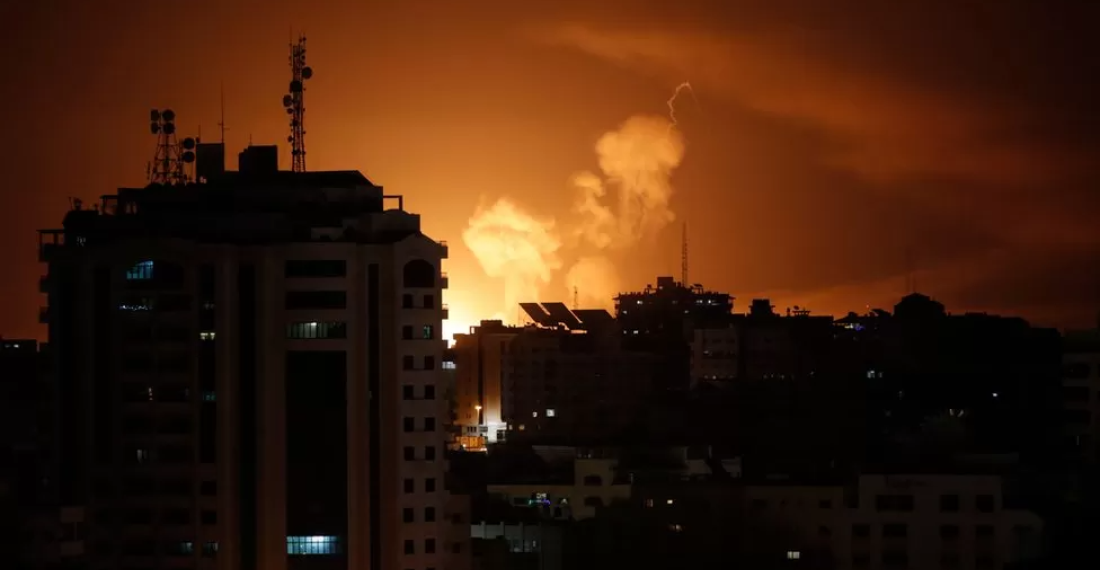The Israeli military (IDF) has carried out air stikes on the Palestinian militant group Hamas in southern Lebanon and the Gaza Strip overnight on 6-7 April.
The military said they launched the strikes in response to a 34-rocket barrage fired from southern Lebanon into Israel on Thursday (6 April), which it blamed on Hamas. It was the biggest attack from Lebanon in 17 years. The Israeli military have said that 25 of the rockets fired from Lebanon were intercepted, but five hit Israeli territory.
After the retaliatory strikes began, militants in Gaza then fired some 44 rockets into Israel, most of which were either intercepted by Israel's Iron Dome defence system or fell in open areas, according to the IDF. At least one house in the city of Sderot was hit, however.
According to the IDF, more than 10 Hamas targets were hit in Gaza, including a shaft for an underground site to construct weapons, three other weapons workshops and an underground tunnel.
There have thus far been no casualties reported from either the strikes or the overnight rocket fire, however a man was injured by shrapnel in northern Israel on Thursday afternoon as a result of the rocket barrage from Lebanon.
Tensions in the region are high after Israeli police raided the al-Aqsa mosque in Jerusalem two nights in a row earlier this week. Violent confrontations with Palestinians ensued inside the mosque and caused anger across the region. The al-Aqsa mosque is the third holiest site in Islam.
source: commonspace.eu with agencies
photo: AFP/BBC






